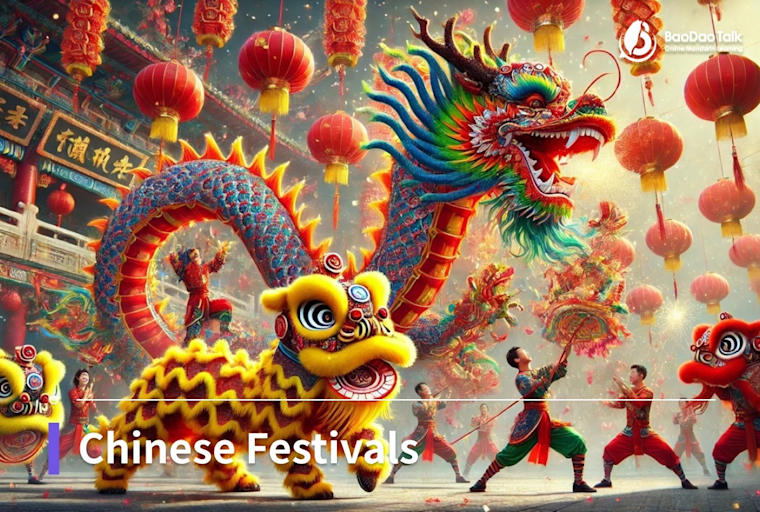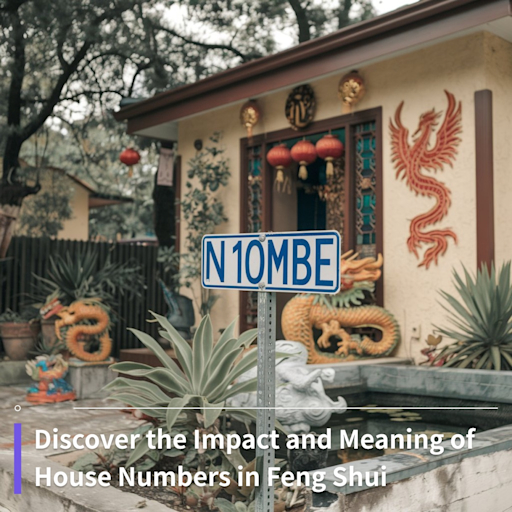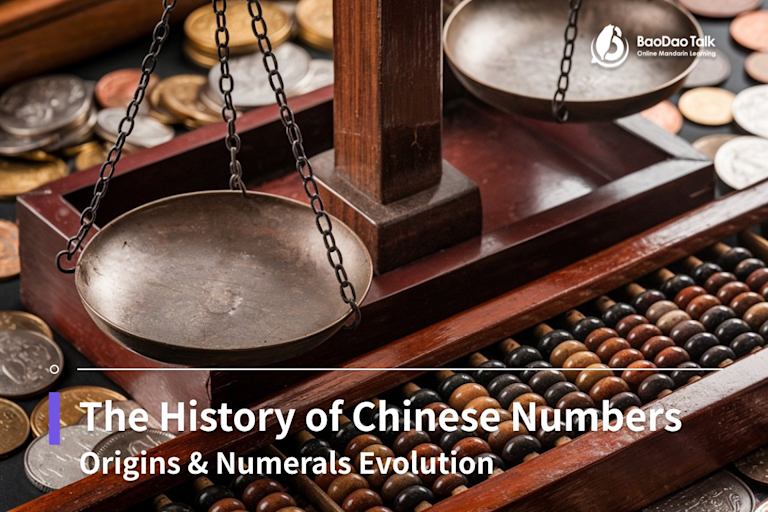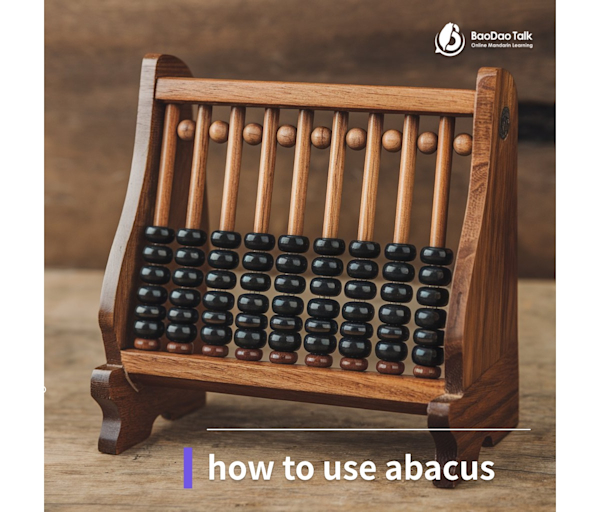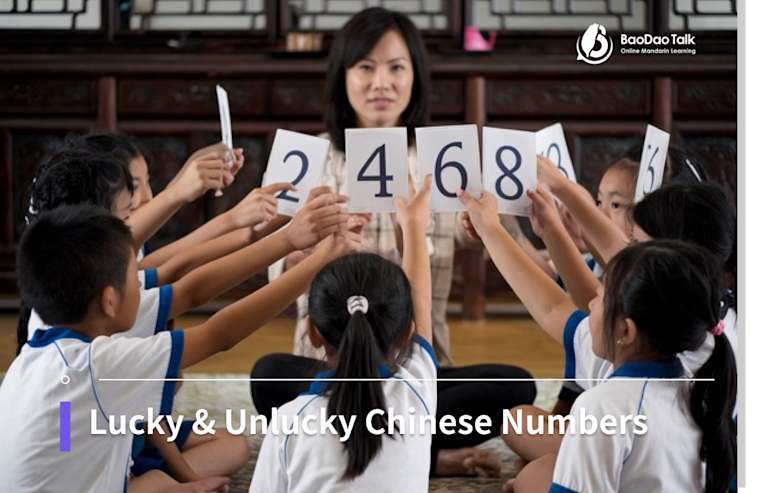Emma
2025-03-11updated
Master Chinese Idioms(Chengyu): Meanings & How to Study

# Learning Mandarin
Learn 35+ common and famous Chinese 4-character idioms list! Boost your Mandarin idiom using skills & cultural understanding with our examples & study tips.
Quick Navigation
- Getting to Know Chinese Idioms a.k.a. Chengyu (成語-chéngyǔ)
- Why Are Chinese Idioms Important?
- Chinese Idioms List: 35+ Popular Chinese Idioms: 成語範例(chéng yǔ fàn lì)
- Idioms for Everyday Life
- 守株待兔 (shǒu zhū dài tù)
- 顯而易見(Xiǎn yì jiàn)
- 久病成醫 (jiu bing cheng yi)
- 笑裡藏刀 (xiao li cang dao)
- 畫蛇添足 (huà shé tiān zú)
- 井底之蛙 (jǐng dǐ zhī wā)
- 天下無敵 (tiān xià wú dí)
- 自相矛盾 (zì xiāng máo dùn)
- 一箭雙雕 (yí jiàn shuāng diāo)
- 雞同鴨講 (ji tong ya jiang)
- 對牛彈琴 (duì niú tán qín)
- 九牛一毛 (jiǔ niú yì máo)
- 一路順風 (yīl ù shùn fēng)
- 冰山一角 (bīng shān yì jiǎo)
- 有氣無力(yǒu qì wú lì)
- 拭目以待 (shì mù yǐ dài)
- 多才多藝 (duō cái duō yì)
- 二話不説 (èr huà bù shuō)
- 獨一無二 (dú yī wú’èr)
- 亂七八糟 (luàn qī bā zāo)
- 愛屋及烏 (ài wū jí wū)
- Idioms for Work and Business
- 紙上談兵 (zhǐ shàng tán bīng)
- 破釜沉舟 (pò fǔ chén zhōu)
- 千方百計 (Qiān fang bǎi jì)
- 狐假虎威 (hú jiǎ hǔ wēi)
- 熟能生巧(Shú néng shēng qiǎo)
- 如魚得水 (rú yú dé shuǐ)
- 對號入座 (duì hào rù zuò)
- 埋頭苦幹(Mái tóu kǔ gàn)
- 廢寢忘食 (fèi qǐn wàng shí)
- 半途而廢 (Bàn tú’ér fèi)
- 一絲不苟 (yī sī bù gǒu)
- Idioms About Feelings
- 心曠神怡 (xīn kuàng shén yí)
- 狗急跳牆 (gǒu jí tiào qiáng)
- 左右為難 (zuǒ yòu wéi nán)
- 三心二意 (Sān xīn èr yì)
- 一見鍾情 (yī jiàn zhōng qíng)
- 一心一意 (Yī xīn yī yì)
- How to Memorize the Chinese Characters of an Idiom?
- Practice and Learn More Chinese Idioms with BaoDao Talk
Getting to Know Chinese Idioms a.k.a. Chengyu (成語-chéngyǔ)
What are Chinese Idioms?
Chinese idioms, also known as Mandarin idioms or Chinese 4-character idioms (成語, chéngyǔ), are concise expressions typically consisting of four characters. These idioms convey precise and often profound meanings, encapsulating complex ideas and wisdom in just a few words. They are also rich in cultural and historical significance, offering insights into Chinese history, philosophy, and literature.
The structure of Chinese idioms is often metaphorical, using vivid imagery and symbolism to convey precise meanings. Each character contributes to the overall message, creating a compact expression that carries deep wisdom or insight. For example, the idiom "一箭雙雕" (yī jiàn shuāng diāo) literally translates to "one arrow, two eagles," but figuratively means to achieve two goals with one action.
Where do Chinese Idioms originate?
The origins of Chinese idioms are diverse and rich, drawing from a wide range of sources. Here are some notable examples:
-
Confucian Classics: Many Chinese idioms find their roots in the teachings of Confucius and other Confucian scholars. For instance, the idiom "有教無類" (yǒu jiào wú lèi) comes from Confucius's philosophy, meaning "teach all kinds regardless of classes", emphasizing the importance of equal learning opportunities and highlights the principle of fairness in education.
-
Historical Events: Some idioms originated from significant historical events. "完璧歸趙" (wán bì guī zhào) originates from the Warring States Period, referring to returning a precious jade intact to its rightful owner, Zhao, from Qing, the most ambitious state at the time. It symbolizes fulfilling a promise or restoring something valuable despite challenges.
-
Myths and Legends: Chinese mythology and folklore have also inspired idiomatic expressions. The idiom "夸父追日" (kuā fù zhuī rì) depicts the mythical figure Kuafu's pursuit of the sun. It symbolizes an impossible or futile endeavor, as Kuafu's attempt to catch the sun ultimately led to his demise.
How Many Chinese Idioms Are There?
The number of Chinese idioms available varies depending on the source, but estimates range from 5,000 to 20,000 idioms. However, it's important to note that people don't have to memorize all of them.
On average, a native Chinese speaker may recognize and understand a few thousand commonly used idioms, typically ranging from 2,000 to 4,000. These idioms are frequently encountered in daily conversations, literature, and other forms of communication.
Why Are Chinese Idioms Important?
Chinese idioms are crucial for foreign learners as they enrich everyday communication, media, and literature, adding depth to conversations. Utilizing expressions like "畫龍點睛" (huà lóng diǎn jīng), which literally means "adding the eyes to a dragon painting," signifies the importance of providing a crucial finishing touch. By using such idiomatic expressions, foreign speakers demonstrate not only a deeper understanding of the language but also an appreciation for its cultural nuances, which is truly "畫龍點睛" to the daily conversations.
Learning Chinese idioms also provides valuable cultural insights and references. Idioms often reflect traditional values and historical events, such as "臥薪嘗膽" (wò xīn cháng dǎn), which literally means "lying on firewood and tasting gall." This idiom originated from a historical anecdote during the Warring States Period, where a vassal named Jing Ke swore vengeance against the King of Qin for the death of his master. To prepare himself for the task, Jing Ke endured hardships, lying on a bed of firewood and tasting gall to steel his resolve.
Ultimately, proficiency in Chinese idioms impresses native speakers, showcasing a high level of language proficiency and cultural awareness. Mastering idiomatic expressions not only improves language skills but also enriches the language-learning experience, facilitating effective communication and deeper cultural understanding.
Chinese Idioms List: 35+ Popular Chinese Idioms: 成語範例(chéng yǔ fàn lì)
Looking to sound more natural when speaking Chinese? This section introduces a list of 35 common Chinese idioms that you can confidently use in everyday conversations, professional settings, and beyond. Mastering these phrases will help you express ideas more fluently and understand the cultural richness behind the language. Let’s take a look!
Idioms for Everyday Life
Chinese idioms are useful for expressing yourself clearly and colorfully. From describing something obvious as 顯而易見 (Xiǎn ér yì jiàn) to wishing someone a safe journey with 一路順風 (yī lù shùn fēng), these concise phrases will elevate your everyday Chinese. Let's explore a curated collection of practical idioms you can start using today!
守株待兔 (shǒu zhū dài tù)

-
Literal translation: To guard a tree stump waiting for rabbits.
-
Meaning: The idiom warns against passively waiting for opportunities without proactive effort or planning.
-
Events/Legends: The idiom "守株待兔" (shǒu zhū dài tù) originates from an ancient tale about a farmer who, while working in his field, witnessed a rabbit accidentally running into a tree stump and dying. The farmer, amazed by this stroke of luck, decided to replicate the scenario by constantly waiting beside the same tree stump, hoping for another rabbit to meet the same fate. However, his idleness and unrealistic expectations ultimately led to disappointment and wasted effort.
-
Example: 如果只守株待兔,而不去積極尋找客戶,生意是不會成功的。(Rúguǒ zhǐ shǒuzhūdàitù, ér bù qù jījí xúnzhǎo kèhù, shēngyì shì bù huì chénggōng de.)
-
Example Translation: If you just sit around waiting for customers instead of actively seeking them out, your business won't succeed.
顯而易見(Xiǎn yì jiàn)
-
Meaning: Literally translating to "obvious and easy to see," this idiom describes something that is clear, evident, and easily understood.
-
Example: 他的謊言顯而易見,大家都知道他在說謊。(Tā de huǎngyán xiǎn ér yì jiàn, dàjiā dōu zhīdào tā zài shuōhuǎng.)
-
Example Translation: You could see right through his lies; everyone knew he was lying.
久病成醫 (jiu bing cheng yi)
-
Literal translation: Literally translating to "long illness becomes doctor." It means that someone who has been ill for a long time becomes knowledgeable about medicine and health through their own experiences.
-
Meaning: experience is the best teacher.
-
Example: 他長期受慢性病困擾,現在都久病成醫了,對自己的病情瞭若指掌。(Tā chángqí shòu mànxìngbìng kùnrǎo, xiànzài dōu jiǔbìngchéngyī le, duì zìjǐ de bìngqíng liǎorùozhǐzhǎng.)
-
Example Translation: He has suffered from a chronic illness for a long time, and now he has become quite knowledgeable about medicine because of it.
笑裡藏刀 (xiao li cang dao)
-
Literal translation: There is a hidden knife in the smile. "笑" (xiào) means smile, "裡" (lǐ) means in or inside, "藏" (cáng) means to hide, and "刀" (dāo) means knife or dagger.
-
Meaning: This idiom describes someone who appears friendly and kind on the surface but harbors malicious intentions or is plotting harm.
-
Example: 他總是笑咪咪的,但實際上是個笑裡藏刀的人,你可要小心。(Tā zǒngshì xiào mīmī de, dàn shíjì shang shì gè xiào lǐ cáng dāo de rén, nǐ kě yào xiǎoxīn.)
-
Example Translation: He always smiles, but he hides his true intentions behind that smile. You’d better be cautious.
畫蛇添足 (huà shé tiān zú)
-
Literal translation: Draw a snake and add feet to it.
-
Meaning: To ruin something by adding unnecessary or superfluous details or to overcomplicate what was originally sufficient.
-
Events/Legends: The idiom "畫蛇添足" (huà shé tiān zú) comes from a tale in ancient China where a talented painter was asked to paint a snake. After finishing the snake, he decided to add legs to make it look more complete. However, by doing so, he ruined the natural simplicity and beauty of the snake.
-
Example: 他本來的計劃已經很完美了,加上這些額外的步驟只是畫蛇添足。(Tā běnlái de jìhuà yǐjīng hěn wánměi le, jiāshàng zhèxiē éwài de bùzhòu zhǐshì huà shé tiān zú.)
-
Example Translation: His original plan was already perfect; adding these extra steps is just gilding the lily.

井底之蛙 (jǐng dǐ zhī wā)
-
Literal translation: A frog at the bottom of a well. This frog believed its small world in the well was the entirety of the universe.
-
Meaning: It describes individuals who have a narrow or limited perspective due to their lack of experiences or knowledge beyond their immediate surroundings.
-
Example: 我們不應該做井底之蛙,要多出去看看,增廣見聞。(Wǒmen bù yìnggāi zuò jǐng dǐ zhī wā, yào duō chūqù kànkan, zēngguǎng jiànwén.)
-
Example Translation: We shouldn't be frogs at the bottom of a well; we should go out more and broaden our horizons.
天下無敵 (tiān xià wú dí)
-
Literal translation: The idiom "天下無敵" (tiān xià wú dí) has a literal translation where "天下" (tiān xià) means "under heaven," "無" (wú) represents "without," and "敵" (dí) signifies "enemy."
-
Meaning: It means to be invincible or unbeatable.
-
Example: 這位選手實力強大,被譽為天下無敵。(Zhè wèi xuǎnshǒu shílì qiángdà, bèi yù wèi tiānxià wúdí.)
-
Example Translation: This athlete is incredibly strong and often considered a force to be reckoned with.
自相矛盾 (zì xiāng máo dùn)
-
Literal translation: Mutually spear and shield.
-
Meaning: Contradict oneself.
-
Events/Legends: An ancient merchant of spears and shields once boasted, "My shield is impenetrable," and "My spear can pierce anything." When asked what would happen if his spear struck his shield, he was speechless.
-
Example: 他的話總是自相矛盾,讓人難以相信他。(Tā de huà zǒng shì zì xiāng máo dùn, ràng rén nányǐ xiāngxìn tā.)
-
Example Translation: His words are always at odds with each other, making it hard for people to trust him.
一箭雙雕 (yí jiàn shuāng diāo)
-
Literal translation: Literally translating to "one arrow, two eagles." The idiom "一箭雙雕" (yí jiàn shuāng diāo) has a literal translation where "一" (yí) means "one," "箭" (jiàn) represents "arrow," "雙" (shuāng) means "double," and "雕" (diāo) signifies "bird."
-
Meaning: It means to kill two birds with one stone or to achieve two objectives with a single action.
-
Example: 這項計劃不僅可以提高效率,還能省下成本,實在是一箭雙雕的好主意。(Zhè xiàng jìhuà bù jǐn kěyǐ tí gāo xiàolǜ, hái néng shěng xià chéngběn, shízài shì yí jiàn shuāng diāo de hǎo zhǔyì.)
-
Example Translation: This plan not only increases efficiency but also saves costs, truly a great idea to kill two birds with one stone.

雞同鴨講 (ji tong ya jiang)
-
Literal translation: Chicken talking with a duck.
-
Meaning: A situation where people are unable to communicate effectively because they are speaking different languages, have different perspectives, or are simply not understanding each other.
-
Example: 他們兩個對這個問題的看法完全不同,簡直是雞同鴨講,沒辦法達成共識。(Tāmen liǎng gè duì zhège wèntí de kànfǎ wánquán bùtóng, jiǎnzhí shì jī tóng yā jiǎng, méi bànfǎ dáchéng gòngshì.)
-
Example Translation: The two of them have completely different views on this issue; it’s like they’re speaking different languages, so they can’t reach a consensus.
對牛彈琴 (duì niú tán qín)
-
Literal translation: Playing lute to a cow.
-
Meaning: It means to offer something valuable to someone who cannot appreciate it.
-
Events/Legends: During the Warring States Period, the skilled musician Gongming Yi encountered a grazing cow in the countryside. Inspired, he played elegant lute music, hoping to entertain the animal. However, the cow remained indifferent, continuing to graze, even as Gongming Yi switched to more joyful tunes.
Disappointed, Gongming Yi was consoled by others who pointed out that the cow's inability to appreciate music was the reason for its lack of response. With a sigh, Gongming Yi returned home with his lute, recognizing the limitations of his audience.
-
Example: 跟他討論這麼深奧的問題就像是對牛彈琴,他根本聽不懂。(Gēn tā tǎolùn zhème shēn'ào de wèntí jiù xiàng shì duì niú tán qín, tā gēnběn tīng bù dǒng.)
-
Example Translation: Discussing such profound issues with him is like casting pearls before swine; he simply doesn't understand.

九牛一毛 (jiǔ niú yì máo)
-
Literal translation: Nine cows with one missing hair have no impact whatsoever, where "九" (jiǔ) means "nine," "牛" (niú) means "cows," "一" (yì) means "one," and "毛" (máo) signifies "hair."
-
Meaning: It means one hair from nine cows or something that is extremely small and insignificant in comparison to the whole.
-
Example: 這筆錢對他來說只是九牛一毛,根本不算什麼。(Zhè bǐ qián duì tā lái shuō zhǐ shì jiǔ niú yì máo, gēnběn bù suàn shénme.)
-
Example Translation: This amount of money is just a drop in the bucket for him, hardly worth mentioning.
一路順風 (yīl ù shùn fēng)
-
Literal translation: A road with smooth wind.
-
Meaning: A common farewell wish for a pleasant and safe journey. It expresses the hope that someone will have good luck and smooth sailing on their trip.
-
Example: 祝你一路順風,旅途愉快!(Zhù nǐ yī lù shùn fēng, lǚtú yúkuài!)
-
Example Translation: I wish you a pleasant journey!
冰山一角 (bīng shān yì jiǎo)
-
Literal translation: It means the tip of the iceberg.
-
Meaning: A small, visible part of a much larger hidden problem or situation.
-
Example: 我們看到的問題只是冰山一角,背後還有更多的困難。(Wǒmen kàndào de wèntí zhǐshì bīngshān yì jiǎo, bèihòu hái yǒu gèng duō de kùnnán.)
-
Example Translation: The problems we see are just the tip of the iceberg; there are more difficulties behind the scenes.

有氣無力(yǒu qì wú lì)
-
Literal translation: Literally translating to "have breath without strength." "有" (yǒu) means "have," "氣" (qì) means "energy," "無" (wú) means "without," and "力" (lì) means "strength."
-
Meaning: It means to be weak or feeble, lacking energy or vitality.
-
Example: 他病了幾天,看起來有氣無力的樣子。(Tā bìng le jǐ tiān, kàn qǐlái yǒu qì wú lì de yàngzi.)
-
Example Translation: He has been under the weather for a few days and looks weak and feeble.
拭目以待 (shì mù yǐ dài)
-
Literal translation: Wiping eyes to wait for something. "拭" (shì) means "to wipe," "目" (mù) means "eyes," "以" (yǐ) means "with," and "待" (dài) means "to wait."
-
Meaning: It means to wait and see, often with anticipation or expectation.
-
Example: 新產品即將上市,我們拭目以待它的表現。(Xīn chǎnpǐn jíjiāng shàngshì, wǒmen shìmù yǐ dài tā de biǎoxiàn.)
-
Example Translation: The new product is about to hit the market, and we eagerly await its performance.
多才多藝 (duō cái duō yì)
-
Literal translation: "多" (duō) means "many," "才" (cái) means "talents," and "藝" (yì) means "skills."
-
Meaning: It means to be versatile or to have many talents and skills.
-
Example: 她是一位多才多藝的藝術家,能歌善舞,還會畫畫。(Tā shì yī wèi duō cái duō yì de yìshùjiā, néng gē shàn wǔ, hái huì huà huà.)
-
Example Translation: She is a versatile artist, who can sing and dance, and also paint.
二話不説 (èr huà bù shuō)
-
Literal translation: Not saying a second word.
-
Meaning: Someone who acts without hesitation or argument; to do something without question. It implies immediate action, willingness, and agreement.
-
Example: 聽到朋友需要幫助,他二話不說就趕過去了。(Tīng dào péngyǒu xūyào bāngzhù, tā èr huà bù shuō jiù gǎn guòqù le.)
-
Example Translation: Hearing that his friend needed help, he went there immediately without hesitation.
獨一無二 (dú yī wú’èr)
-
Meaning: Literally translating to "unique one without a second." It means unique or one of a kind.
-
Example: 這位藝術家的作品獨一無二,無法模仿。(Zhè wèi yìshùjiā de zuòpǐn dúyīwú’èr, wúfǎ mófǎng.)
-
Example Translation: The works of this artist are unique and cannot be imitated.
亂七八糟 (luàn qī bā zāo)
-
Literal translation: "亂" (luàn) means "messy," "七" (qī) means "seven," "八" (bā) means "eight," and "糟" (zāo) also means "mess."
-
Meaning: It means a mess or disorder.
-
Example: 他的房間總是亂七八糟,很難找到東西。(Tā de fángjiān zǒng shì luànqībāzāo, hěn nán zhǎodào dōngxī.)
-
Example Translation: His room is always in a mess, making it hard to find things.
愛屋及烏 (ài wū jí wū)
-
Literal translation: The idiom "愛屋及烏" (ài wū jí wū) has a literal translation of if loving someone, one also cares for the crows resting on their house., where "愛" (ài) means "love," "屋" (wū) represents "house," "及" (jí) means "covering, reaching," and "烏" (wū) signifies "crow."
-
Meaning: It means to love everything associated with someone or something, including the unattractive aspects.
-
Example: 愛屋及烏,如果你說很喜歡我,那你也應該喜歡我的家人。(Ài wū jí wū, rúguǒ nǐ shuō hěn xǐhuan wǒ, nà nǐ yě yīnggāi xǐhuan wǒ de jiārén.)
-
Example Translation: Love me, love my dog. You say you like me a lot, so you should also like my family.
Idioms for Work and Business
More than just daily life phrases, Chinese idioms offer a glimpse into a culture that values planning, perseverance, and strategic thinking. These idioms will make you a more effective and culturally aware professional.
紙上談兵 (zhǐ shàng tán bīng)
-
Literal translation: The idiom "紙上談兵" (zhǐ shàng tán bīng) has a literal translation of discussing military strategies only on words, where "紙" (zhǐ) means "paper," "上" (shàng) means "on," "談" (tán) means "to discuss," and "兵" (bīng) means "soldiers" or "military strategy."
-
Meaning: It means to engage in impractical or theoretical discussions without taking action, based on a story of an official who talked about military strategy but had no real experience.
-
Example: 我們需要的是能解決問題的人,而不是只會紙上談兵的評論家。(Wǒmen xūyào de shì néng jiějué wèntí de rén, ér bùshì zhǐ huì zhǐ shàng tán bīng de pínglùnjiā.)
-
Example Translation: What we need are people who can solve problems, not just critics who only know how to theorize.
破釜沉舟 (pò fǔ chén zhōu)
-
Literal translation: Break cauldrons and sink ships.
-
Meaning: The idiom emphasizes the importance of wholeheartedly pursuing a goal without any possibility of turning back.
-
Events/Legends: It originates from a story about the Chinese general Xiang Yu, who, during a war, crossed a river to confront his enemies. To show his determination and prevent retreat, he ordered his soldiers to destroy their cooking pots and sink their boats. This bold act signified their unwavering commitment to fight to the end, leaving no choice but to move forward with absolute resolve.
-
Example: 他破釜沉舟,毅然决定放棄退路,全力投入新的事業。(Tā pò fǔ chén zhōu, yì rán jué dìng fàng qì tuì lù, quán lì tóu rù xīn de shìyè.)
-
Example Translation: He burned his bridges and committed wholeheartedly, leaving no room for retreat as he ventured into a new business endeavor.
千方百計 (Qiān fang bǎi jì)
-
Meaning: Literally translating to "a thousand ways, a hundred plans," this idiom describes a situation where someone demonstrates extreme resourcefulness, going to any lengths and trying every possible approach to achieve their goal.
-
Example: 為了籌集資金,他千方百計地尋找投資者。(Wèile chóují zījīn, tā qiān fāng bǎi jì de xúnzhǎo tóuzīzhě.)
-
Example Translation: In order to raise funds, he tried every possible way to find investors.
狐假虎威 (hú jiǎ hǔ wēi)
-
Literal translation: The fox borrows the tiger's ferocity by walking with him.
-
Meaning: To exploit another's authority or power to intimidate others.
-
Events/Legends: The idiom "狐假虎威" (hú jiǎ hǔ wēi) originates from a fable where a fox, lacking strength, would boast about being as fearsome as a tiger. One day, the fox encountered other animals and claimed authority under the tiger's name. The animals, believing the fox was backed by the tiger's power, obeyed out of fear.
-
Example: 這位經理只是狐假虎威,其實並沒有真正的能力。(Zhè wèi jīnglǐ zhǐshì hújiǎhǔwēi, qíshí bìng méiyǒu zhēnzhèng de nénglì.)
-
Example Translation: This manager is just putting on airs, but he doesn't have any real abilities.
熟能生巧(Shú néng shēng qiǎo)
-
Meaning: Literally translating to "skill comes from practice," this idiom emphasizes that proficiency and mastery are achieved through diligent and repeated practice; practice makes perfect.
-
Example: 只要你多加練習,就能熟能生巧,把這項技能學好。(Zhǐyào nǐ duō jiā liànxí, jiù néng shú néng shēng qiǎo, bǎ zhè xiàng jìnéng xuéhǎo.)
-
Example Translation: As long as you practice more, you’ll master this skill because practice makes perfect.
如魚得水 (rú yú dé shuǐ)
-
Literal translation: "如" (rú) means "like," "魚" (yú) means "fish," "得" (dé) means "get," and "水" (shuǐ) signifies "water." It means like a fish in water.
-
Meaning: Being in a very comfortable or suitable environment.
-
Example: 他在新公司如魚得水,工作起來非常順利。(Tā zài xīn gōngsī rú yú dé shuǐ, gōngzuò qǐlái fēicháng shùnlì.)
-
Example Translation: He feels like a fish in the water at the new company, working very smoothly.
對號入座 (duì hào rù zuò)
-
Literal translation: "對" (duì) means "to," "號" (hào) means "number," "入" (rù) means "enter," and "座" (zuò) means "seat." It originally refers to theatergoers taking their seats according to the numbers on their tickets.
-
Meaning: It is often used to describe someone who cannot stay calm and identifies themselves when a criticism or comment has not named anyone specifically.
-
Example: 老闆批評工作不認真的人,他馬上對號入座,顯得非常緊張。(Lǎobǎn pīpíng gōngzuò bù rènzhēn de rén, tā mǎshàng duìhào rùzuò, xiǎnde fēicháng jǐnzhāng.)
-
Example Translation: When the boss criticized those who were not diligent in their work, he immediately took it to heart and looked very nervous.
埋頭苦幹(Mái tóu kǔ gàn)
-
Literal translation: Bury head to endure work.
-
Meaning: It emphasizes hard work, dedication, and a strong work ethic.
-
Example: 他一直默默地埋頭苦幹,終於取得了成功。(Tā yīzhí mòmò de máitóukǔgàn, zhōngyú qǔdé le chénggōng.)
-
Example Translation: He has always quietly worked diligently, and finally achieved success.

廢寢忘食 (fèi qǐn wàng shí)
-
Literal translation: Abandoning sleep and forgetting food.
-
Meaning: It means to neglect sleep and forget to eat, describing someone who is so engrossed in their work or passion that they forget to take care of basic needs.
-
Example: 她對研究充滿熱情,常常為了實驗廢寢忘食。(Tā duì yánjiū chōngmǎn rèqíng, chángcháng wèile shíyàn fèiqǐnwàngshí.)
-
Example Translation: She is so passionate about research that she often neglects sleep and forgets to eat because of experiments.
半途而廢 (Bàn tú’ér fèi)
-
Literal translation: "半" (bàn) means "half," "途" (tú) means "way," "而" (ér) means "and," and "廢" (fèi) means "to abandon."
-
Meaning: It means to give up halfway or to leave something unfinished.
-
Example: 我們不能在這個時候半途而廢,一定要堅持到底,完成這項任務。(Wǒmen bùnéng zài zhège shíhòu bàntú'érfèi, yídìng yào jiānchí dàodǐ, wánchéng zhè xiàng rènwù.)
-
Example Translation: We cannot throw in the towel now; we must see this through to the end and complete this task.
一絲不苟 (yī sī bù gǒu)
-
Literal translation: "一絲" (yī sī) means "a thread," "不" (bù) means "not," and "苟" (gǒu) means "careless."
-
Meaning: It means to be meticulous or to not overlook even the smallest detail.
-
Example: 他做事一絲不苟,從不放過任何細節。(Tā zuòshì yīsībùgǒu, cóng bù fàngguò rènhé xìjié.)
-
Example Translation: He is meticulous in his work, never missing any detail.
Idioms About Feelings
Connect on a deeper level by understanding emotions through Chinese Idioms. The common human experiences are beautifully captured in Chinese idioms. Delve into this collection of idioms to express your feelings and understand those of others with greater empathy.
心曠神怡 (xīn kuàng shén yí)
-
Literal translation: The idiom "心曠神怡" (xīn kuàng shén yí) has a literal translation where "心" (xīn) represents "heart," "曠" (kuàng) means "broad," "神" (shén) signifies "spirit," and "怡" (yí) translates to "delighted."
-
Meaning: It denotes a state of being relaxed, content, and at peace, typically experienced in tranquil surroundings or moments of inner calm.
-
Example: 在大自然中漫步讓我感到心曠神怡。(Zài dà zìrán zhōng mànbù ràng wǒ gǎndào xīn kuàng shén yí.)
-
Example Translation: Walking in nature makes me feel at ease and content.
狗急跳牆 (gǒu jí tiào qiáng)
-
Literal translation: The idiom "狗急跳牆" (gǒu jí tiào qiáng) has a literal translation where "狗" (gǒu) means "dog," "急" (jí) means "urgent," "跳" (tiào) means "to jump," and "牆" (qiáng) means "wall."
-
Meaning: It means to act out of desperation or to take extreme measures when cornered or in an emergency.
-
Example: 考試臨近時,學生們有時會狗急跳牆地通宵複習,希望臨時抱佛腳能派上用場。 (Kǎoshì línjìn shí, xuéshēngmen yǒushí huì gǒujítiàoqiáng de tōngxiāo fùxí, xīwàng línshíbàofójiǎo néng pàishàng yòngchǎng.Kǎoshì línjìn, xuéshengmen yǒushí cǎiqǔ "gǒu jí tiào qiáng" de cèlüè tōngxiāo fùxí.)
-
Example Translation: When exams are approaching, students often resort to cramming all night, hoping that some last-minute studying will pay off.
左右為難 (zuǒ yòu wéi nán)
-
Literal translation: "左右" (zuǒ yòu) means "left and right," and "為難" (wéi nán) means "to be difficult."
-
Meaning: It means to be in a dilemma or to be caught in a difficult situation where making a choice is hard.
-
Example: 他在兩個朋友之間左右為難,不知道該幫助哪一個。(Tā zài liǎng gè péngyǒu zhī jiān zuǒ yòu wéi nán, bù zhīdào gāi bāngzhù nǎ yī g�è.)
-
Example Translation: He was caught between a rock and a hard place for his friends, not knowing which friend to help.
三心二意 (Sān xīn èr yì)
-
Literal translation: Three hearts, two minds.
-
Meaning: It implies a lack of focus and commitment.
-
Example: 做事不要三心二意,要專心才能把事情做好。(Zuòshì bù yào sānxīn'èryì, yào zhuānxīn cái néng bǎ shìqíng zuò hǎo.)
-
Example Translation: Don't be indecisive when doing things; you need to be focused to do things well.
一見鍾情 (yī jiàn zhōng qíng)
-
Meaning: Literally translating to "one glance to fall in love." It means falling in love at first sight.
-
Example: 他們在派對上相遇,彼此一見鍾情。(Tāmen zài pàiduì shàng xiāngyù, bǐcǐ yījiànzhōngqíng.)
-
Example Translation: They met at a party and fell in love at first sight.
一心一意 (Yī xīn yī yì)
-
Literal translation: One heart with one mind.
-
Meaning: It emphasizes dedication, commitment, and unwavering focus.
-
Example: 他一心一意地投入工作,希望能盡快完成任務。(Tā yīxīnyīyì de tóurù gōngzuò, xīwàng néng jǐnkuài wánchéng rènwù.)
-
Example Translation: He devoted himself wholeheartedly to his work, hoping to complete the task as soon as possible.
How to Memorize the Chinese Characters of an Idiom?
Learning Chinese idioms presents challenges: using them incorrectly due to context misunderstanding, difficulty memorizing lengthy phrases, and understanding cultural references without knowledge of Chinese history, literature, or folklore can complicate comprehension and usage.
To overcome these challenges and effectively memorize the Chinese characters of idioms, consider the following tips:
- Start with simple idioms and gradually progress to more complex ones to build confidence and familiarity.
- Break down the words or characters within each idiom, learning their meanings, pronunciations, and stroke orders to facilitate memorization.
- Dive into the stories or origins behind idioms to gain a deeper understanding of their meanings and cultural context.
- Pay attention to how idioms are used in movies, TV shows, or music, and practice identifying and understanding them in context.
- Engage in conversation exercises to practice using idioms appropriately and confidently in real-life situations.
- Seek guidance from tutors, language partners, or native speakers to clarify any uncertainties and deepen your understanding of idioms and their usage.
Practice and Learn More Chinese Idioms with BaoDao Talk
Mastering Chinese idioms is essential for deepening your understanding of Mandarin and immersing yourself in Chinese culture. These idiomatic expressions not only enhance your language proficiency but also offer valuable insights into the nuances of communication. To sharpen your skills and expand your repertoire of idioms, consistent practice is key.
BaoDao Talk stands out for its myriad advantages in Mandarin learning. Our platform offers interactive learning experiences, ensuring dynamic engagement and active participation throughout your language journey. With meticulously structured courses, you'll find a seamless progression from foundational concepts to advanced proficiency, tailored to suit your individual learning pace and preferences.
At BaoDao Talk, we prioritize quality education, which is why we handpick only the most qualified and experienced tutors to guide you on your language-learning adventure. Our tutors are not only native speakers but also skilled educators who are committed to providing personalized support and guidance every step of the way. With BaoDao Talk, you'll receive top-notch instruction from experts dedicated to your success.
Ready to elevate your Mandarin skills? Visit BaoDao Talk now and unlock the door to a world of language learning possibilities.
Read More:
- Decode Top 38 Chinese Symbols with Meanings & Cultural Importance - BaoDao Talk
- How to Count in Mandarin: Chinese Numbers 1 to 10 and More - BaoDao Talk
- 14 Chinese Festivals: How They’re Celebrated Traditionally - BaoDao Talk
- Chinese Number Hand Signals and Counting: Complete Guide
- The Chinese Abacus Explained: Counting, Multiplication & More - BaoDao Talk
- Chinese Lucky & Unlucky Numbers: the Cultural Impact Explained
Share to:
